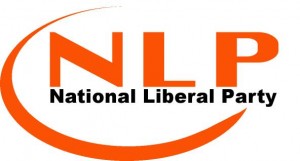People’s Alliance (UK) Press Release

CROSS YOUR FINGERS AND VOTE AV!
The members of the new political campaigning group – The People’s Alliance (UK) – are launching their first public campaign on the 14th December.
The campaign entitled ‘CROSS YOUR FINGERS’ is calling upon the British electorate to vote YES to the forthcoming referendum (May 2011) on introducing the Alternative Vote (AV) at future Parliamentary elections.
Both of the two founding political parties – The National Liberal Party & the United People’s Party – would have preferred a vote on introducing genuine electoral reform such as Proportional Representation (PR) where all shades of opinion are represented in the Chamber. They say however that if the NO vote against any change wins, those supporting the present system (including the First Past the Post) will say “You’ve had your referendum, the matter is now settled for the next 100 years!” .
They are therefore calling upon the public to ‘cross their fingers’ and vote YES and hope this will lead onto further reform including the introduction of a form of PR.
A leaflet (bespoke versions by both parties) entitled ‘HavE YOUR SAY’ is being released on the day and will be distributed up to the vote.
The launch date of the 14th December has been chosen to coincide with the 1918 General Election which was based on the Representation of the People’s Act of that year that extended the vote to the majority of men and for the first time included (some) women. A YES vote will also result in voting reform.
End
Cllr. David Durant – National Secretary NLP natliberal@aol.org & 07761976219
Cllr. Andrew Stott – Leader UPP asg.stott@virgin.net
‘Members of the PA (UK) coalition (composed of Independent parties) are not surrendering their values or identities, but agree to promote common values in a spirit of co-operation. We are determined to put our best foot forward and work together for a cause that we all stand firmly in favour of.’

National Liberal Party (NLP) www.nationalliberal.org
The National Liberals are a (national) Liberal party in the UK that believes that the personal liberty of a nation’s citizens is paramount whilst accepting that this freedom is best preserved within the framework of a democratic nation state. A National Liberal therefore views democracy and patriotism as two sides of the same coin. They call this ‘National Liberalism’. It presently believes that personal liberties are under threat from a Big Brother state and Independence by interfering bureaucracies like the EU.
![]()
United Peoples Party (UPP) www.unitedpeoplesparty.org.uk
The United People’s Party is a political party in the UK that works to combine the ideals of nationalism with those of equality and tolerance, fighting for the freedoms of the individual and promoting national unity. This is a party for all the people of Britain, regardless of faith, colour, sexuality, disability or origin. Together, united under one banner, we will change this country for the better.
Download the NLP version of the leaflet by clicking here
Date: December 13, 2010
Categories: Press Statements











